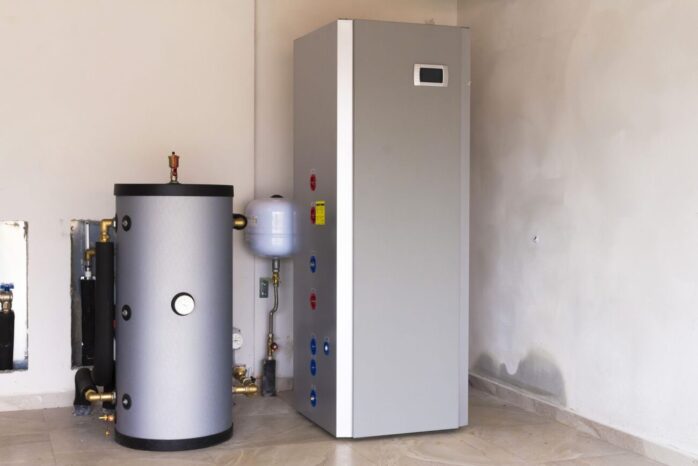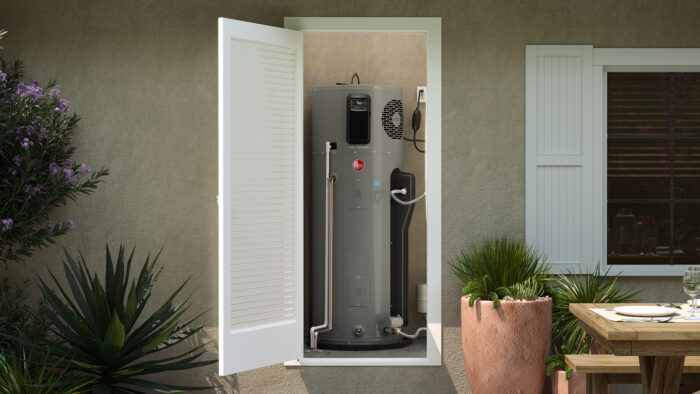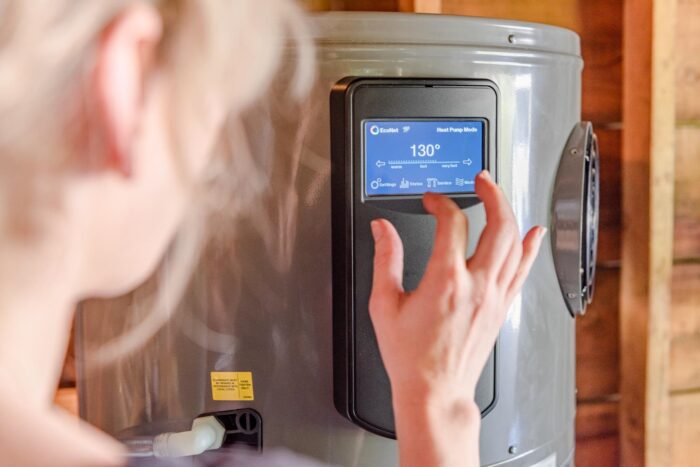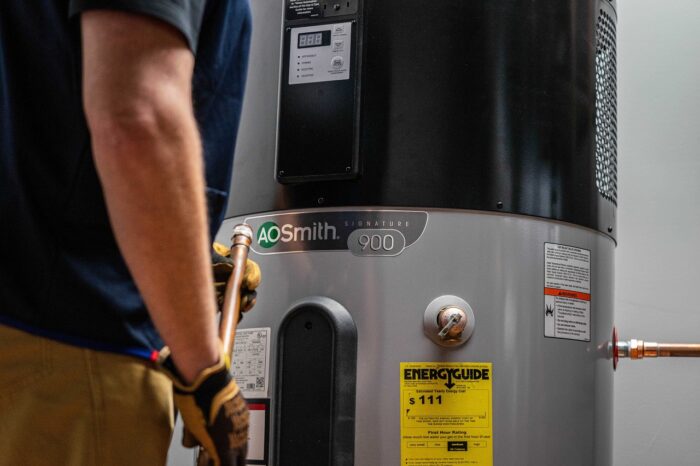
As the days of traditional water heaters become numbered, it’s becoming more and more apparent that hybrid water heaters are the way of the future. With their efficient use of energy and ability to save you money on your utility bills, hybrid water heaters are quickly becoming a preferred option for many households. Get ready to wave goodbye to your outdated traditional water heater – it’s time to make way for the modern hybrid!
Hybrid Water Heaters Explained

Hybrid water heaters have become increasingly popular in recent years, and for good reason. They offer significant improvements in energy efficiency and operational cost savings compared to traditional tank-style electric-powered water heaters. But what exactly are they?
A hybrid water heater is an efficient combination of both storage (tank-style) and on-demand (tankless) technology, offering the benefits of both electric and gas systems. It has two components: a large insulated tank with a heat pump that captures warm air from inside your home, plus an auxiliary electric element to supplement the tank when additional hot water is needed. This combination allows the hybrid unit to heat more efficiently across temperature settings, meaning you can access more hot water faster—and at lower operating costs than older technology. Hybrid units come as electric/heat pumps or gas/heat pump hybrids, giving users more flexibility when it comes to selecting their energy source.
Advantages of Hybrid Water Heaters
They use approximately half the energy as traditional electric heaters while providing an essentially unlimited amount of hot water. These heaters can also save you money on your utility bills because they cost less to run than their counterparts, making them a great option for many homeowners.
Hybrid water heaters are also low maintenance. On average, hybrid water heaters need to be serviced once every 5-7 years, whereas traditional electric and gas models usually require more frequent service calls. The combination of increased energy efficiency, lower installation and operating costs, and high reliability makes hybrid water heaters the most cost-effective choice for many households.
In addition to offering financial benefits and improved reliability, hybrid water heaters also provide environmental benefits by eliminating greenhouse gas emissions associated with lower-efficiency electric or gas models. By using solar thermal collectors and/or ground source heating technology in conjunction with an integrated storage tank, hybrid systems are able to capture renewable thermal energy that can be used for domestic hot water needs – reducing dependence on nonrenewable sources of energy such as coal or natural gas. This can significantly reduce the homeowner’s carbon footprint while helping reduce demand for these finite resources.
Cost Considerations

When considering a switch to a hybrid water heater, among the most important questions to ask are: how much will it cost and how quickly will my investment pay off? Depending on the size and type of model you choose, the cost can range from $1500-$2,500 plus installation. While this may seem like a large sum upfront, understand that these units are built to last much longer than traditional electric or gas models. Even when factoring in installation costs, hybrid water heater experts suggest the total operational and maintenance costs of a hybrid water heater are typically much lower over time than other types of heaters.
In addition to lower operational costs, many areas offer financial incentives for installing a more energy-efficient model. Depending on where you live and your utility provider, you could qualify for tax credits or rebates when switching from an electric or gas water heater to a hybrid model. It’s also important to research any potential savings associated with special financing options offered by your local government or through utility companies. Such programs are designed to make it easier for homeowners concerned about the cost of buying a new unit – allowing them to spread out payments over time in order to save money in the long run.
Environmental Benefits
These devices help to reduce greenhouse gases that are responsible for global warming. By relying on a combination of gas or propane and electricity, hybrid systems use less energy than standard electric models, which in turn helps to reduce emissions by up to 66%. Reduced emissions help to make significant contributions to air quality improvement.
In addition, these energy-efficient units also require less hot water to do the same job as an electric unit. A hybrid model typically runs more efficiently than a standard electric model so you can spend less money on fuel while still enjoying long hot showers. This further reduces your home’s carbon footprint as well as reduces total energy usage over time.
Installation and Maintenance

Installing a hybrid water heater can be complex and should always be completed by a licensed plumber. First, the electric unit must be installed with the proper clearance from combustible materials to meet electrical codes and National Fire Protection Association (NFPA) standards. The same applies to the combustion unit, as fuel-fired appliances need proper clearances for combustible materials. After the water heater is correctly installed, a complete system checkout must be conducted by a qualified technician to ensure that it is operating properly and all safety devices are functioning properly.
After everything is checked out and all service requirements are met, it’s important that homeowners take proper steps in maintaining their hybrid water heaters. Regular maintenance includes cleaning the burner orifices and checking the combustion chamber for cleanliness; inspecting seals, gaskets, anode rods, flush valves, and ports; adding algaecide tablets every six months to prevent microbial growth in tanks; adjusting pressure relief valve pressure settings as necessary; checking for air pockets in tanks; replacing burned-out igniters; flushing sediment from tank bottoms every six months; changing filters as necessary, and periodically testing air elimination valves for proper operation.
During colder weather when condensation can occur on vents for gas-powered systems, homeowners should make sure that those vents are kept clear of ice or snow buildup so that proper exhaust flow is maintained.
Conclusion
The hybrid water heater offers the best of both worlds. It is cost-effective, efficient, and provides stability of operation. Irrespective of where you live in the United States, this appliance has revolutionized the way we heat our water, effectively cutting energy bills and preventing pollution.
By choosing a hybrid water heater over traditional methods you can save hundreds on your energy bills each year while creating a more eco-friendly home environment. It pays off to know your options so you can make an informed purchase decision when it comes time to replace your current appliance – because now you know why hybrid water heaters are truly the future!











